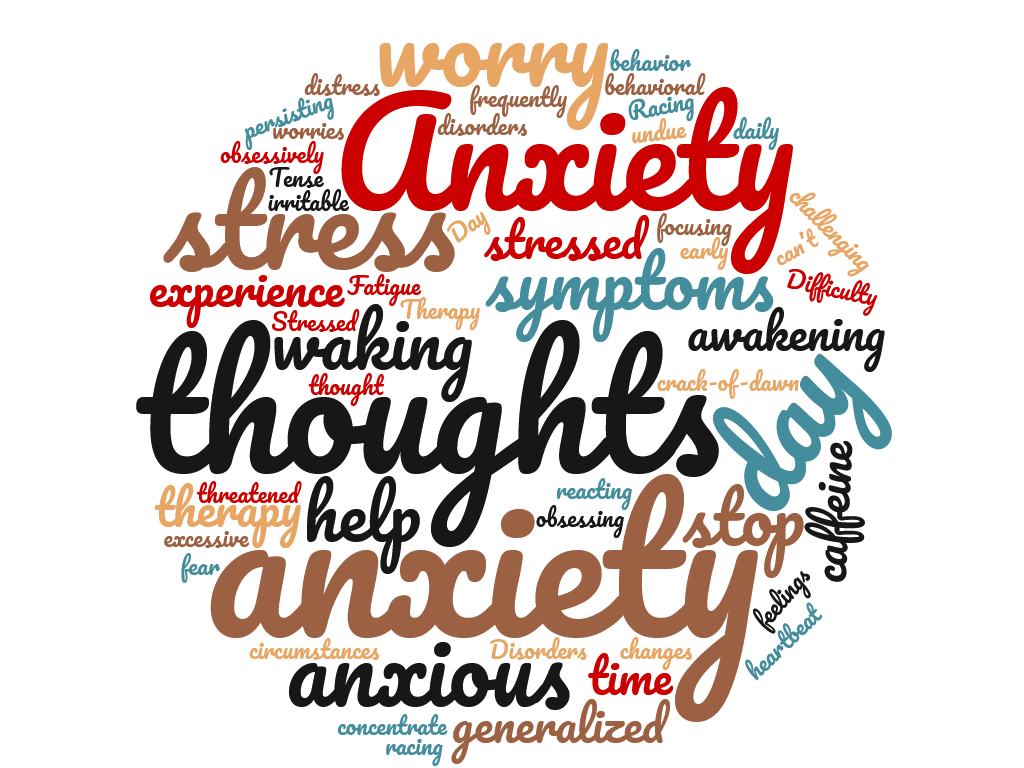Does your anxiety begin before you even hit the alarm button in the morning? Or maybe you are waking up early with anxious thoughts about the day ahead already coursing through your mind. Morning anxiety is common simply because stress is common, and it’s usually nothing to worry about. If you find that you are frequently anxious about the everyday tasks and situations that most other people aren’t threatened by, however, you may have developed an anxiety disorder.
What Are The Symptoms Of Morning Anxiety?
As with other forms of anxiety and anxiety disorders, the symptoms you may experience upon awakening with morning anxiety can include:
- Fatigue
- Tense muscles, fast breathing, or a pounding heartbeat
- Feeling irritable, on edge, restless, or “keyed up”
- Racing thoughts or, conversely, you may not be able to concentrate or may find that your minds goes blank
- Difficulty controlling your anxiety or stopping yourself from obsessively worrying
What Causes Morning Anxiety?
When you start the day overly stressed, worried, and with racing thoughts from the moment your eyes open, it’s pretty accurate to say that you are going through morning anxiety. The term “morning anxiety” isn’t a medical term, however it perfectly describes the crack-of-dawn distress that many people experience.
Why would you have anxiety before your day even starts? There are several possible causes:
- Going to bed worried or waking in the night with anxious thoughts will contribute to morning anxiety.
- Researchers have found that cortisol (the stress hormone) levels are highest within the first hour of waking, and then slowly drop during the day. This peak cortisol level can be even higher if you are already under stress.
- When you awaken, your blood sugar levels are low, which can result in an increase in anxiety symptoms. Eating a food containing high protein first thing in the morning can help to lower your anxiety if low blood sugar is contributing to it.
- Too much sugar and caffeine can also increase your anxiety, so be aware of what you eat when you first awaken. Again, aim for eating something with protein in it as opposed to starting your day with something like a cup of coffee and a sugary cereal.
Is Morning Anxiety Common?
Morning anxiety is more common than people think, however it should go away once whatever is worrying you has gone away. In other words, if you are worried about a job review, for example, your anxiety should resolve after you have gotten your review. If you are still very anxious after that or find that you are dealing with undue anxiety, worry, or stress in the morning, you may have a generalized anxiety disorder (GAD).
When you have a generalized anxiety disorder, you worry uncontrollably and excessively about things like money, your job, family and health. If you have GAD, these worries will interfere with your daily life, creeping into your day to day activities and persisting for at least six months.
How Can I Stop Waking Up With Anxiety?
Many times you can stop morning anxiety through simple lifestyle changes. Get plenty of sleep, limit caffeine and sugar intake, and eat a healthy diet. Exercise helps to reduce stress levels as does meditation, deep breathing exercises, and mindfulness training.
You might also try challenging your negative thoughts. You can do this by stopping yourself and asking yourself if the thought is accurate. If you had a good friend who was worried about the same thing, what would you tell them? Would you think their fear was valid?
Another exercise to try is limiting your negative thinking. If you can’t stop yourself from obsessing about something, then go ahead and worry – for a 10 minute period. At the end of that time, get started on a task or project. The idea is to do something to distract yourself so you can stop focusing on your negative thoughts.
Practicing gratitude can also help. Keeping a journal of the things that make you happy and reading through it can be very helpful when you are stressed.
If these self-care tips aren’t working, it may be time to turn to a professional. Therapy for GAD and excessive anxiety can include:
- Cognitive behavioral therapy to learn new ways of thinking and reacting to circumstances that cause anxiety
- Psychodynamic psychotherapy to help you gain new insights into your feelings, behavior and thoughts
- Mindfulness training
- Group therapy
- Sometimes short term use of medications may be prescribed
Get Help For Morning Anxiety
If your anxiety seems to be increasing or you find that you are experiencing anxiety upon awakening in the morning, you may have an anxiety disorder. If your symptoms get worse or persist for longer than two weeks, please speak to one of our trained mental health professionals. We offer both virtual / online and in-office treatment options.
For more information, please contact The Center for Treatment of Anxiety and Mood Disorders in Delray Beach, Florida at 561-496-1094 today.
Dr. Andrew Rosen
Dr. Andrew Rosen PHD, ABPP, FAACP is a Board-Certified Psychologist and the Founder and Director of The Center for Treatment of Anxiety and Mood Disorders, as well as, the Founder of The Children’s Center for Psychiatry Psychology and Related Services.





